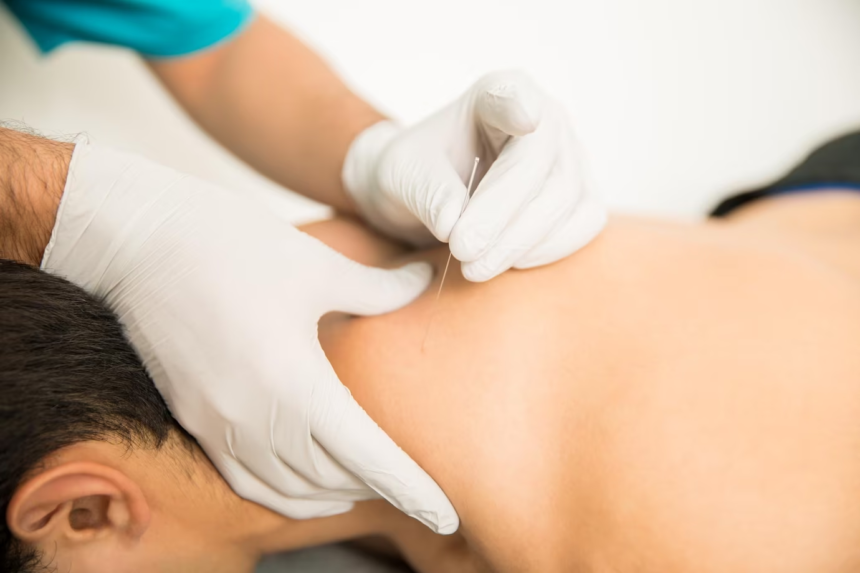Sleep plays a vital role in our overall health and well-being. However, many South Africans struggle with sleep-related issues, ranging from insomnia to sleep apnea. In the search for effective and holistic solutions, acupuncture has emerged as a promising therapy. This ancient Chinese practice involves the insertion of thin needles into specific points on the body to promote balance and harmony. When it comes to improving sleep, acupuncture offers a range of potential benefits for South Africans seeking a restful night’s rest.
One of the primary benefits of acupuncture for sleep is its ability to reduce stress and promote relaxation. Stress is a common underlying factor in sleep disturbances, and South Africans often experience high levels of stress due to various factors such as work pressure, financial concerns, and social challenges. Acupuncture helps to stimulate the release of endorphins, the body’s natural “feel-good” hormones, which can alleviate stress and induce a state of relaxation. By addressing stress, acupuncture sets the stage for a more peaceful and restorative sleep experience.
Insomnia, characterized by difficulty falling asleep or staying asleep, is a prevalent sleep disorder in South Africa. Acupuncture has shown promising results in treating insomnia by regulating the body’s sleep-wake cycle and promoting a balanced energy flow. By targeting specific acupuncture points associated with sleep and relaxation, such as those on the wrists, ankles, and scalp, acupuncture can help individuals achieve a more consistent and restful sleep pattern. Acupuncture treatments can also address underlying imbalances in the body that contribute to insomnia, such as anxiety, hormonal fluctuations, or chronic pain.
Sleep apnea, another common sleep disorder, is characterized by interrupted breathing during sleep. It can lead to excessive daytime sleepiness and an increased risk of cardiovascular problems. While acupuncture may not directly treat the underlying causes of sleep apnea, it can complement other treatment approaches and provide symptom relief. Acupuncture may help by promoting relaxation of the throat muscles, improving respiratory function, and reducing overall inflammation in the body. As part of a comprehensive treatment plan, acupuncture can enhance the effectiveness of other interventions for sleep apnea, such as continuous positive airway pressure (CPAP) therapy.
Acupuncture’s holistic approach also addresses the mind-body connection, which is crucial for achieving optimal sleep. Many South Africans experience sleep disturbances due to anxiety, depression, or other mental health challenges. Acupuncture can help regulate neurotransmitters and hormones related to mood and stress, promoting emotional balance and stability. By addressing the root causes of sleep disturbances, acupuncture provides a comprehensive and integrative approach to sleep improvement.
In addition to its direct effects on sleep, acupuncture offers potential benefits for overall health and well-being. It can boost the immune system, improve circulation, and reduce inflammation, all of which contribute to better sleep quality. Acupuncture also supports the body’s natural self-healing mechanisms, helping to restore balance and optimize overall bodily functions.
When considering acupuncture for sleep improvement, it is important to consult a qualified and experienced acupuncturist. They will assess the individual’s unique needs, medical history, and sleep patterns to create a personalized treatment plan. Acupuncture sessions typically involve the gentle insertion of thin, sterile needles into specific points on the body. These sessions are generally painless and deeply relaxing, allowing individuals to unwind and prepare for a restful night’s sleep.
As with any therapeutic modality, the benefits of acupuncture for sleep may vary from person to person. It is important to have realistic expectations and commit to a series of treatments to achieve the desired results. Additionally, individuals should continue to maintain good sleep hygiene practices, such as creating a comfortable sleep environment, following a consistent sleep schedule, and engaging in relaxation techniques, alongside acupuncture sessions.
In conclusion, acupuncture offers a range of potential benefits for South Africans seeking to improve their sleep. By addressing stress, insomnia, sleep apnea, and the mind-body connection, acupuncture provides a holistic and natural approach to sleep improvement. With its long history of use and growing body of scientific evidence, acupuncture is gaining recognition as a valuable therapeutic tool for achieving restful and rejuvenating sleep.










